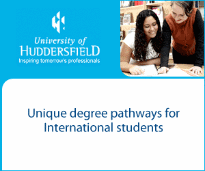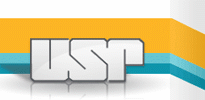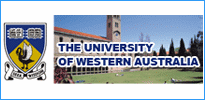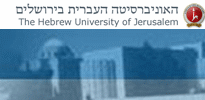Singapore: Singapore Education Profile
2015/02/17
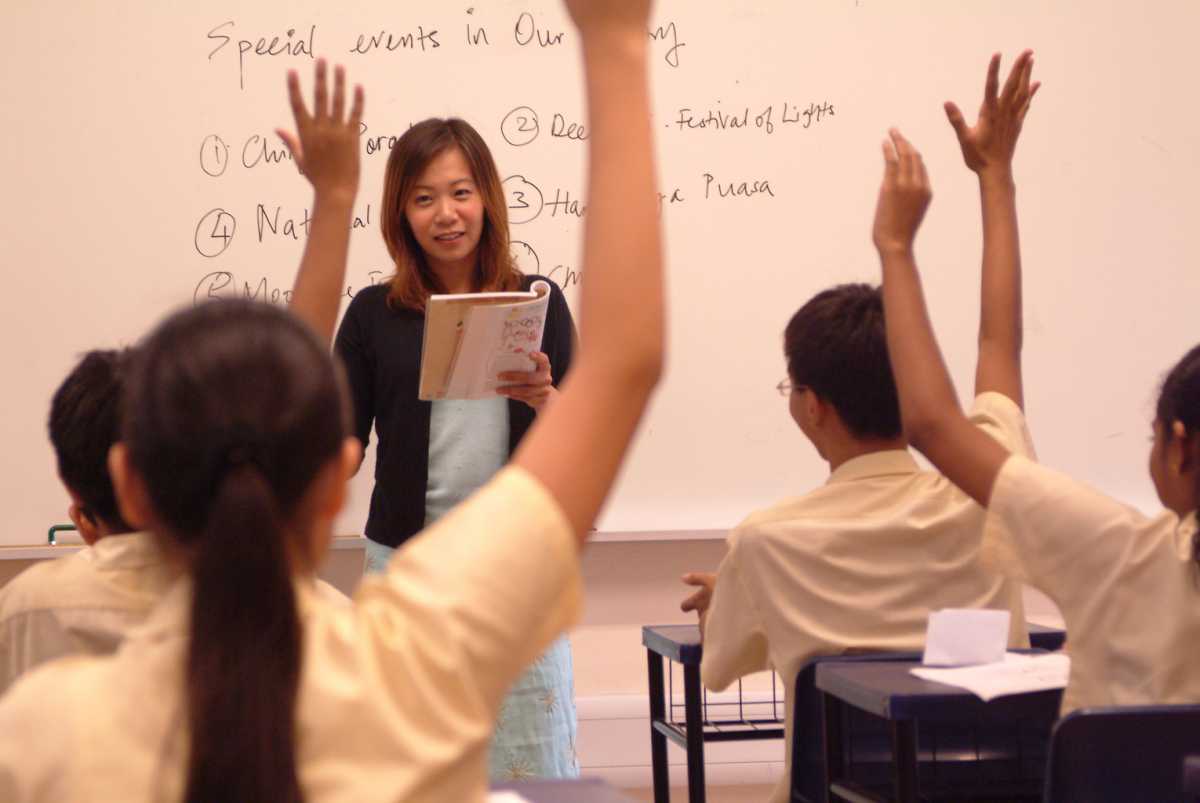
There are pronounced differences between local and international schools in Singapore. While the children of expatriates may in theory attend State schools, in practice this is uncommon. Similarly, there are only limited circumstances in which Singaporean children may attend an international school.
A Singaporean child may apply to one of the foreign international schools only if he or she has been in education abroad or if one parent is of another nationality.
St. Joseph's Institution International (SJII - High School only), ACS (International) and Hwa Chong International are among the very few international schools licensed to enrol Singaporean students who do not meet the above criteria.
Children of English-speaking expatriates usually go to a foreign international school where they will be educated in English, and may follow a UK curriculum or study for the International Baccalaureate.
Children of expatriates in Singapore on employment/professional visit passes may apply for admission to the government or government-aided schools. Details of how this should be done are available through the Ministry of Education (MOE) website.
Competition for a place in a Singaporean State school can be fierce but if there are vacancies, the student will need to obtain a student pass from the Immigration Department. School fees in such schools are much lower than in private schools.
Vaccinations are required to enter Singapore schools. Keep records of administered childhood vaccines, as schools may ask for up to date documentation.
Children born in Singapore will have a health booklet where vaccinations are recorded
Children born outside Singapore can get a record of vaccination from their doctor
Contact details of International Schools in Singapore can be found in the Education & Training Business Directory pages:
- International Boarding Schools
- International Expat Primary Schools
- International Expat Senior Schools
- Preschools, Kindergartens & Nursery
-
Special Needs Schools
Education in Singapore is managed by Ministry of Education (MOE), which directs education policy. The ministry controls the development and administration of state schools which receive government funding but also has an advisory and supervisory role to private schools. For both private and state schools, there are variations in the extent of autonomy in their curriculum, scope of government aid and funding, tuition burden on the students, and admission policy.
Children with disabilities attend special education (SPED) schools run by Voluntary Welfare Organisations (VWOs), which are partially funded by the Ministry of Education. Education spending usually makes up about 20 % of the annual national budget, which subsidises state education and government-assisted private education for Singaporean citizens and furnishes the Edusave programme, but the costs are significantly higher for non-citizens.
In Singapore, the English language is the first language learned by half the children by the time they reach preschool age and becomes the primary medium of instruction by the time they reach primary school. English is the language of instruction for most subjects, especially mathematics and the natural sciences; the official Mother Tongue languages are generally not taught in English, although there is provision for the use of English at the initial stages. Certain schools, such as secondary schools under the Special Assistance Plan (SAP) which encourages a richer use of the mother tongue may teach occasionally in English and another language. There are also other schools which have been experimenting with curricula that integrate language subjects with mathematics and the sciences, using both English and a second language.
Kindergartens
Kindergartens in Singapore provide up to three years of pre-school for children ages three to six. The three years are commonly called Nursery, Kindergarten 1 (K1) and Kindergarten 2 (K2), respectively.
Kindergartens provide an environment for children to learn how to communicate, play, and interact with others, and to prepare them for the start of formal education in primary schools. Activities include learning of language and numbers, development of personal and social skills, games, music, outdoor play. Children learn two languages, English and their official mother tongue (Chinese, Malay, or Tamil). Many private or church-based kindergartens might not offer Malay or Tamil, so non-Chinese pupils might also learn Chinese in these kindergartens.
The kindergartens are run by the private sector, including community foundations, religious bodies, and civic or business groups. There are more than 200 kindergartens registered with the Ministry of Education. Kindergartens are also run by child care centres as well as international schools.
Primary education
Primary education is a four-year foundation stage (Primary 1 to 4) and a two-year orientation stage (Primary 5 to 6). Primary education is compulsory and free, though there is a fee of up to SGD 13 monthly per student that goes to the school to help cover miscellaneous costs.
Foundation stage
The foundation stage is the first stage of formal schooling. The four years, from primary 1 to 4, provide a foundation in English, mother tongue (which includes Chinese, Malay, Tamil or a Non-Tamil Indian Language (NTIL)) and Mathematics. Other subjects include civics and ethics ("Civics and Moral Education"), arts and crafts, music, health education, social studies, and physical education, which are taught throughout Primary 1 to 6. Science is taught from Primary 3 onwards.
Orientation stage
All pupils advance to the orientation stage after Primary 4, where English Language, Mother Tongue and Mathematics are taught at the appropriate level according to the ability of the pupils. Schools are given the flexibility to develop their own examinations to match pupils with the levels that suit them. The streaming system has been tweaked, where previously, pupils were streamed at Primary 5 to the EM1, EM2 and EM3 (English and Mother Tongue at 1st, 2nd and 3rd language respectively) streams, pupils are streamed according to the subject from January 2008. They can take their Mother Tongue at the higher, standard or foundation levels; Science and Maths can be taken at the standard or foundation levels.
Primary School Leaving Examination
At the end of Primary 6, the national Primary School Leaving Examination (PSLE) is held. The examination determines whether the student is ready to leave primary school by passing; however the primary purpose of the examination is to eventually allocate places in secondary schools to students based on their performance in the examination.
Secondary education
Based on results of the PSLE, students are placed in different secondary education tracks or streams: "Special", "Express", "Normal (Academic)", or "Normal (Technical)"
"Special" and Express are a four-year courses leading up to a Singapore-Cambridge General Certificate of Education Ordinary-level (O-level) exam. The difference between these two courses is that in the "Special" stream, students take 'Higher Mother Tongue' (available for Chinese, Malay and Tamil only) instead of 'Mother Tongue'. A pass in the Higher Mother Tongue 'O' Level Examination constitutes the fulfilment of the Mother Tongue requirement in Singapore, whereas Normal Mother Tongue Students will have to go through one more year of study in their Mother Tongue after their 'O' Levels to take the 'AS' Level Mother Tongue Examinations and fulfil the MOE's requirement. A foreign language, either French, German, or Japanese can be taken in addition to the mother tongue or can replace it.
This is especially popular with students who are struggling with their mother tongues, expatriates, or students returning from abroad. Non-Chinese students may also study Chinese and non-Malay students Malay as a third language. This programme is known as CSP (Chinese Special Programme) and MSP (Malay Special Program). Mother Tongue teachers will conduct these lessons in school after usual hours. Students of Higher Mother Tongue languages are allowed to have up to two points taken off their O-level scoring, a scoring system discussed below where a lower value is generally considered better, if they meet set benchmarks. The Ministry of Education Language Centre (MOELC) provides tuition-free language education for most additional languages that other schools may not cover, and provides the bulk of such education, admitting several thousand students each year.
Normal is a four-year course leading up to a Normal-level (N-level) exam, with the possibility of a fifth year followed by an O-level. Normal is split into Normal (Academic) and Normal (Technical). In Normal (Technical) students take subjects more technical in nature, such as Design and Technology, while in Normal (Academic) students are prepared to take the O-level exam and normally take subjects such as Principles of Accounting. In 2004, the Ministry of Education announced that selected students in the Normal course would have an opportunity to sit for the O-level exam directly without first taking the N-level exam.
With the exception of schools offering the Integrated Programme, which leads to either an International Baccalaureate Diploma or to an A-level exam, most students are streamed into a wide range of course combinations at the end of their second year, making the total number of subject they have to sit for at O-level ranging between six to ten subjects with English, Mother Tongue or Higher Mother Tongue Language, Mathematics, one Science and one Humanities Elective being compulsory. The subject taken varies, and several new subjects such as Computing and Theatre Studies and Drama are being introduced in tandem with the Ministry of Education's revised curriculum.
Former Prime Minister Lee Kuan Yew related the idea of English as a common language in Singapore that both connected citizens of all ethnic-cultural backgrounds, so no ethnic group is forced to learn the language of another, and tied Singapore to the world economy.
Singaporean state schools (public schools) are consistently at or near the top of international achievement rankings.
The education style follows the general principle of “teaching is talking, learning is listening” and students are assessed more on their knowledge than on the thinking process that leads to a particular conclusion. This results-oriented approach can be quite different to previous experiences of expats and their children who are relocating to Singapore and is one reason international students can mostly be found in international schools rather than their local public counterparts.
For those families who prefer the academically rigorous Singaporean system, it is possible to enrol a child in a local school provided there is an opening available.
Pre-school
Even though children are not required to start school before the age of six, there are many pre-school centres for children from six months old. Some will take children as young as three months. These are mainly used by working parents who do not have live-in help.
Between the ages of three and six years children will often be enrolled in a kindergarten. There is a varied choice of these in different areas of the island, including foreign/international kindergartens for the children of expatriates. Kindergartens are run by the private sector and must be registered with the Ministry of Education (MOE).
More information on pre-school in Singapore from the MOE
Child care centres may also offer a kindergarten programme. These are licensed by The Ministry of Community Development, Youth and Sports (MCYS).
Primary Education
In Singapore children start studying at Primary One at the age of six and study for six years.
Singaporean schools will only take children from a certain catchment area, which is determined by a set radius around the school campus. Some schools are more popular than others mainly because of their exam results and it is not uncommon for parents to buy or rent a home within that school's catchment area just to get a place for their children.
At the end of the six years the child takes the Primary School Leaving Examinations (PSLE) before moving on to secondary school for another four or five years.
Secondary Education
Secondary schools in Singapore can be government funded, government aided or independent.
Depending on the results of their Primary School Leaving Examinations the child is placed on different levels (Special, Express or Normal) of course in secondary school.
Students attend four or five years of secondary education.
The Special and Express Courses prepare students for the Singapore-Cambridge General Certificate of Education Ordinary (GCE O) Level examination in four years.
Students in the Normal Course can opt for the Academic or Technical stream, both of which prepare students for the Singapore-Cambridge General Certificate of Education Normal (GCE N) Level examination after four years of study. Upon satisfactory completion of the Normal level examination, students may study for the GCE O Level examination in the fifth year.
Post-secondary and Pre-university
After the secondary level, the student can choose to continue education through a number of institutions:
Technical (ITE) or commercial institutes
MDIS – Management Development Institution of Singapore
MIS – Marketing Institute of Singapore
TMC – Technology Management Corporation
SIM - Singapore Institute of Management
Polytechnic education
Nanyang Polytechnic
Temasek Polytechnic
Ngee Ann Polytechnic
Singapore Polytechnic
Republic Polytechnic
Polytechnics provide diploma courses in a wide range of subjects.
From here the student can follow on with tertiary education. If they choose to study abroad, some universities in the UK, the USA and Australia allow polytechnic graduates to enter the second year of the degree course.
Further information on post-secondary education in Singapore from the MOE
Centralised institutions
These are pre-university centres or junior colleges to prepare for the Senior Cambridge General Certificate of Education Advanced (GCE A) level examinations and later on tertiary education.
A School graduation certificate is awarded to students who complete their pre-university education.
University
For tertiary education Singapore has a number of universities, all of which provide a wide choice of subjects:
National University of Singapore (NUS)
Nanyang Technological University (NTU)
Singapore Management University (SMU)
Overseas:
Many students choose to go to university overseas, especially in the UK, the USA or Australia. Some universities in these countries allow Singaporean polytechnic graduates to enter directly in to the second year of the degree courses.
Grade and scoring systems
Most schools commonly follow the kind of grading system awarded at the Singapore-Cambridge GCE "O" level examination, for which a student sits for at the end of four or five years of secondary education, sitting for at least 6 subjects. The level of achievement in each subject is indicated by the grade obtained, with A1 being the highest achievable grade and F9 the lowest:
- * A1/A2 (Distinction)
- * B3/B4 (Merit)
- * C5/C6 (Credit/Pass)
- * D7 (Sub-Pass/fail, that is, passing at a lower standard in the exam or fail)
- * E8/F9 (Fail)
A student's overall academic performance is measured through several points scoring system (such as the L1R5, L1B5 and L1R4 scoring system) depending on which type of post-secondary institution a student is intending to apply for. Each grade has a point value respective to it, for example, with grade A1 being 1 point, A2 being 2 points, and B3 being 3 points. Thus, the fewer the points obtained, the better the score. For example, in the L1R5 scoring system, the student's L1 or first language (either English or Higher Mother Tongue Language) and R5 or relevant 5 subjects (which must include at least one from the Science & Mathematics group, one from the Humanities group, and excluding subjects such as Religious Studies, Mother Tongue "B" and CCA). Consequently, an L1R5 score of 6 points is considered to be the best score attainable for entrance to a Junior College. A student requires an L1R5 score of below 20 points to be eligible for Junior College. On top of that, students must also pass English and Mother Tongue.
For non-major examinations, several schools use a Mean Subject Grade (MSG) scoring system, while schools running the Integrated Programme (IP) may also use the Grade Point Assessment (GPA) scoring system.
Co-Curricular activities
"Co-Curricular Activities" (CCA) are compulsory at the secondary level, where all pupils must participate in at least one core activity, and participation is graded together with other achievement throughout the four years in a scoring system known as LEAPS ("Leadership, Enrichment, Achievement, Participation, Service"). There are many co-curricular activities offered at the secondary level, varying at each school and each student is judged based in these areas. Competitions and performances are regularly organized. Co-curricular activities are often categorized under the following: Uniformed Groups, Performing Arts, Clubs & Societies and Sports & Games. Students may also participate in more than 1 CCA.
Uniformed Groups
The main uniform groups are NCC (National Cadet Corps), NPCC (National Police Cadet Corps), NCDCC (National Civil Defence Cadet Corps), St John Ambulance Brigade, Red Cross Youth, Singapore Scout Association, Girl Guides, the Boys Brigade and the Girls Brigade. Students are expected to learn drills and wear the respective uniforms, hence the name.
Performing Arts
Performing Arts CCAs can vary, although most will include the Choir, Military/Concert/Symphonic Band, Dance groups for different ethnic culture, Drama and Debate. Most here are oriented on performing and the musical arts.
Clubs & Societies
Clubs and societies are a wide variety, ranging from Singapore Youth Flying Club to Robotics, Media and Infocomm Clubs and martial arts.
Sports & Games
Sports are mainly focused on competitive games, like Track and Field (running, jumping, throwing), volleyball, netball, basketball, archery, table tennis, badminton, tennis, gymnastics and more.
- Singapore News
-
- SINGAPORE: Singapore launches new strategy for human resource industry
- SINGAPORE: Singapore And Food Security
- BRUNEI : The next chapter for the Trans-Pacific Partnership
- JAPAN: BestCities sees opportunity at 2017 Global Forum Tokyo
- AFGHANISTAN: Higher earning Why a university degree is worth more in some countries than others
- AZERBAIJAN: Israel purchases most of its oil from Kazakhstan and Azerbaijan.
- Trending Articles
-
- EGYPT: Egypt's EFG HERMES to invest $21.5 mln in asset manager FIM
- ISRAEL: Hungary's Orban welcomes Netanyahu, vows to fight anti-Semitism
- ZIMBABWE: Cash-strapped Zimbabwe needs $274 million for 2018 election
- TANZANIA: Farmers pushed off their land to save Tanzania's Great Ruaha River
- ANGOLA: W. Africa Crude-Angolan programme emerges
- ZIMBABWE: Zimbabwe: 'So Many Questions' - Zim Bans Polystyrene, but Are There Alternatives?






.gif?1356023993)
